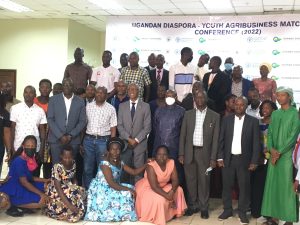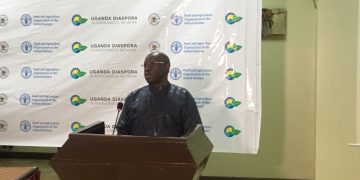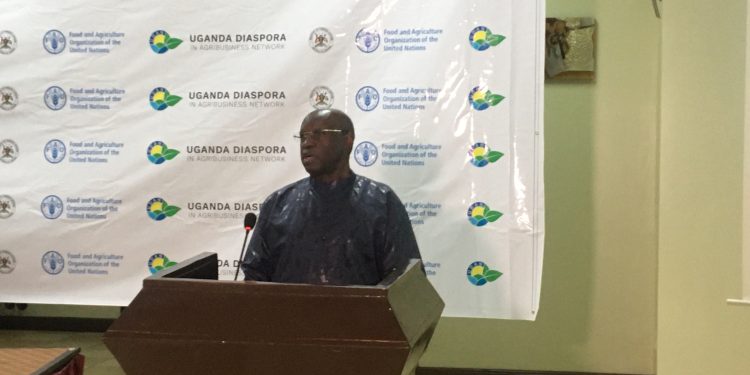The Ministry of Foreign Affairs and the Food and Agricultural Organization (FAO) have appealed to Ugandans living in the diaspora to invest in the Ugandan Agribusiness sector.
Uganda currently has 1.7 million international migrants (38% aged 19 or younger) working in different countries of the world and remitting over $1.2 billion.
Speaking at the launch of the Uganda Diaspora Agribusiness Network (UDAN) on Saturday, Johny Muhindo, the Head of the Diaspora Desk at the Ministry of Foreign Affairs, said government is designing a National Diaspora Policy and the setup of the first Uganda Diaspora in Agribusiness Network.
Muhindo noted that the government is working on the diaspora policy with an aim of “ensuring that we get closer to each other”.
“We want to ensure that you feel free like any other Ugandan through the extension of services and easy transactions,” said Muhindo who represented the Permanent Secretary Ministry of Foreign Affairs, Vicent Bagiire.
He said that the government wants to harmonize all documentation by those living in the diaspora “because now without a National ID, you cannot own a freehold land here”.
“We want to ensure that Ugandans are treated differently. We don’t want you to get difficulties while investing here,” he said, adding:
“I am working on the papers so that you also benefit from the Parish Development Model by ensuring that you get professional managers. We shall continue holding conferences with you aimed at ensuring that we close all existing bridges.”
He asked Ugandans in the diaspora to collaborate, learn from each other, and contribute to the Agribusiness sector through the Diaspora in Agribusiness Network.

Antonio Querido, the FAO Country Representative, said that diaspora communities play an important role in the economic and social development of countries of origin through the transfer of knowledge, skills and targeted investments to the agricultural sector.
He noted that diaspora engagement in agriculture and rural development is often limited due to challenges of investing in rural areas such as; limited information on investment opportunities, understanding of market dynamics and remoteness of rural areas, among others.
Querido noted that FAO acts as a bridge between diaspora organizations and rural stakeholders by strengthening the enabling environment for diaspora contributions through policy dialogue and coordination across migration and agriculture stakeholders.
“As FAO, we work to maximize the benefits of migration for agriculture and rural communities while addressing its adverse drivers by promoting employment and agro-entrepreneurship opportunities,” he said.
At the event, Muhindo also appreciated the role played by the Diaspora in the development of Uganda.
He revealed that the backbone of diaspora contributions to development comes in the form of remittances through the financial resources sent back to their countries of origin.









